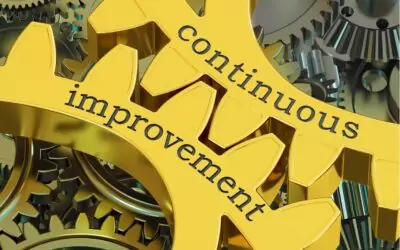For those seeking a new job, interviews present themselves as a goal that comes with significant anxiety. The interviewee is put on the spot and asked a battery of questions, and the high-stakes nature of needing a new job simply adds to the stress.
The “What Color Is Your Parachute?” book emphasizes all conversations, at their core, are just interviews, whether for fun, for information, or for a job. Approaching the interview as another conversation allows you to lower your anxiety and start to treat all your social interactions as practice sessions for any upcoming interviews.
These job interviews are conversations about whether or not to develop a professional relationship between you and someone else, which makes them a lot like dating. Like dating, both the interviewee and the interviewer are asking questions to get to know the other person while also presenting themselves in their best light. This is an extremely important position for a job seeker to remember – interviews are just as important for you to understand the potential employer as it is for them to understand you.
You have a completed Flower Exercise that looks at important considerations for you – the working conditions of a business, the types of people you’d be working with, how the organization would help in your pursuit of purpose in life – and the interview is a chance to ask questions that address those concerns. Some questions might be what skills they are most looking for in an applicant for that job, what are the company’s core values, or what changes the organization has either undergone or has planned for the future.
In turn, you should be prepared to address the employer’s concerns in filling a role. As already discussed, employers seek to minimize their risk. They are coming into the interview wondering whether you would be a risky investment to their enterprise and will ask questions that directly and indirectly address their concerns. Before they invest in the training and development of a new employee, they want to know what you can do for them and whether you possess the skills and traits they find desirable.
Nearly every interview begins with some version of “tell me about yourself” as an opening question. You should use this answer to both sell yourself, and address concerns the employer isn’t saying out loud. It’s not a time to talk about hobbies; it’s a time to talk about your work ethic, the goals you hope to achieve through your purpose in life, and the skills and special knowledge you can bring to the table and how they are applicable to the job at hand. All other questions flow from the employer’s desire to minimize their risk, and if you keep that in mind for each question, answering their underlying risk concern is just as important as answering their question.
When closing an interview, your parting questions should think to the next step and be some form of “When can I expect to hear from you?” or “What is your timeline?” For the times when an interviewer is letting you know they aren’t going to make an offer, you should also ask them to consider whether you’d be a good fit for someone else they know or for a different position within the same organization. Lastly, send a thank you note, preferably through the mail. There are many more tips in the book, and available on its website.


